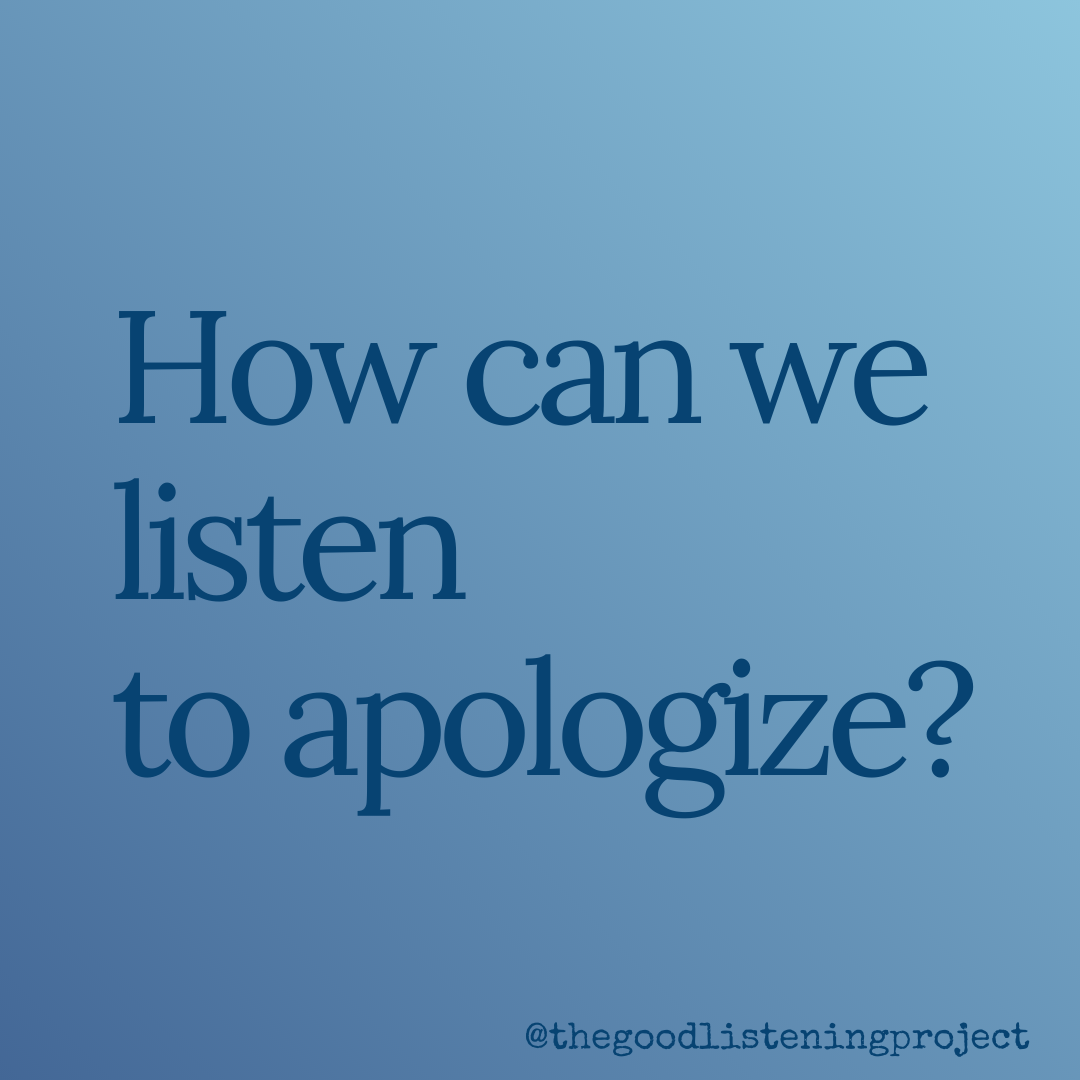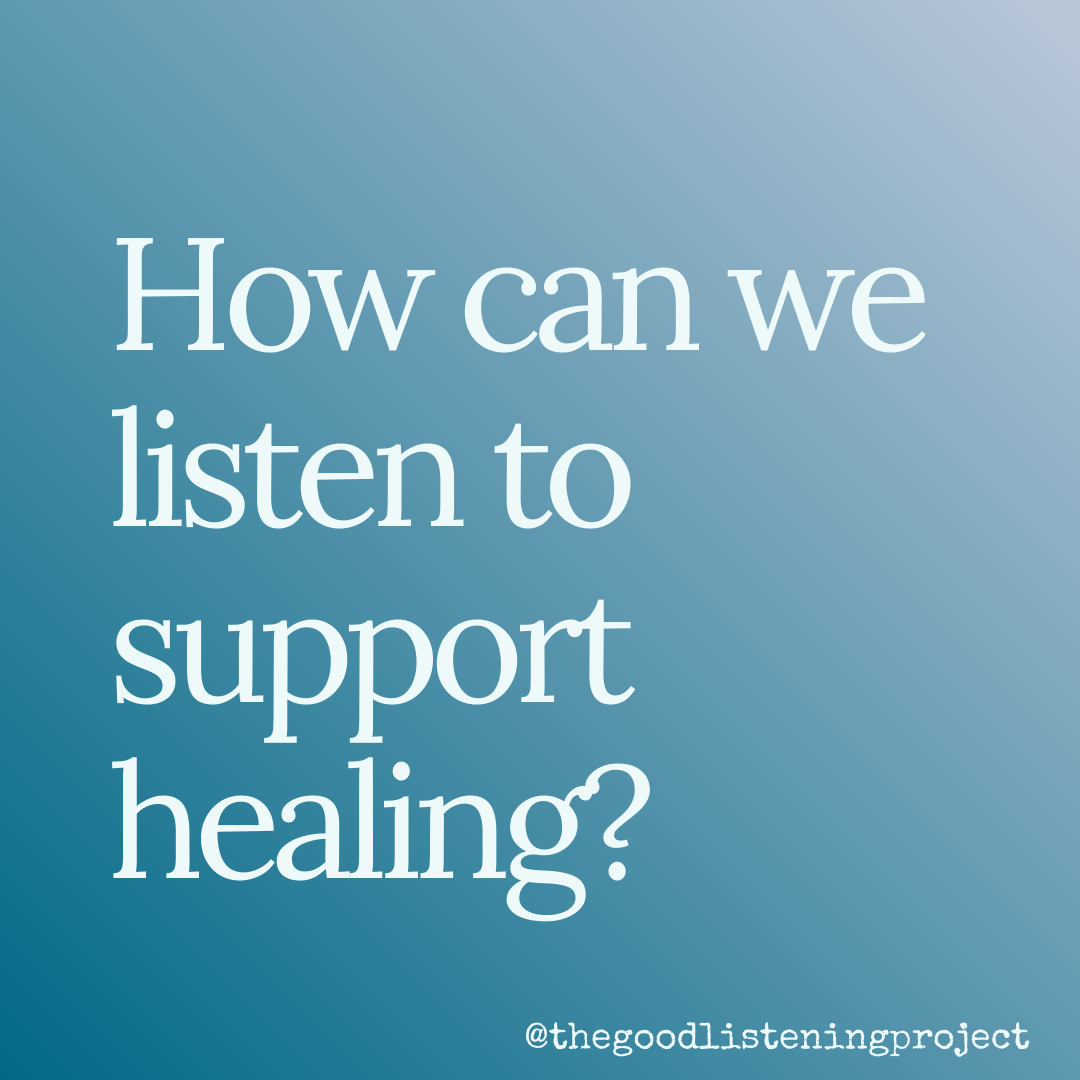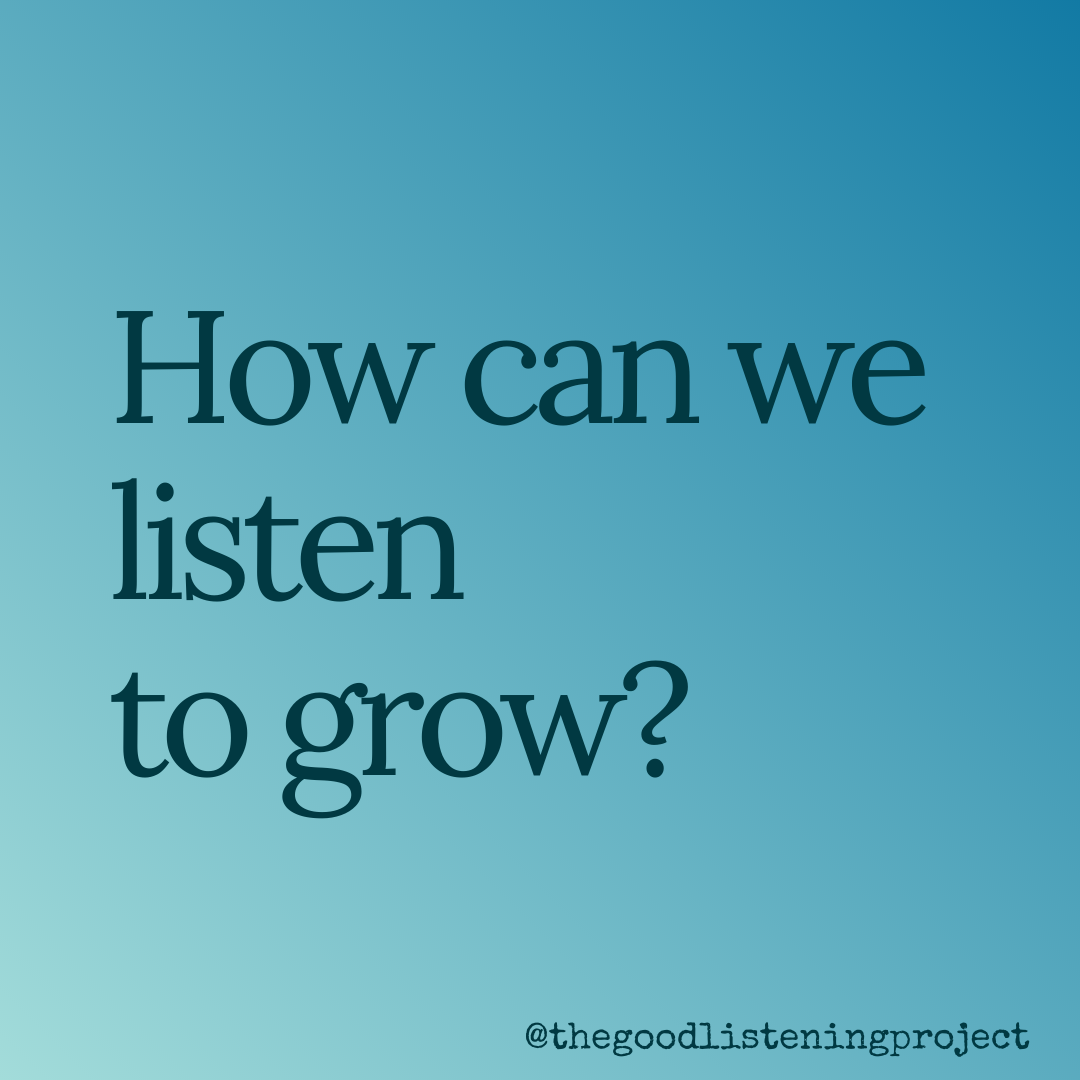There are so many different reasons for listening. In this series, we’re presenting a range of inquiries as a way to think about how and why we listen, and how our intentions affect the experience.
Today we’re asking: How can we listen to love?
What happens when people feel supported and feelings can be discussed openly?
To help create space for this, there are three basic questions that we ask in almost every conversation:
How do you feel about that?
Why is that important?
Could you tell me more about that?
Good listening is about truths and feelings. We get to truths by avoiding assumptions. “Why” questions are your greatest tool here. Design thinking’s “why ladder” instructs you to ask why five times, successively, in response to each answer you get:
Why did you go out? “To get bread.”
Why did you want to get bread? “Because I don’t like the bread we have here.”
Why don’t you like our bread? “Because it has raisins in it.”
Why don’t you like raisins in your bread? “Because I want to eat it with meatloaf.”
Why are you having meatloaf? “Because my doctor said I’m not getting enough iron.”
You get to feelings by building trust. When a person believes that you’re honoring what they’re saying, not judging them, they’ll slowly feel more and more comfortable telling you their feelings.
Excellent listeners are rare, so when you ask “How do you feel about that?,” they’re going to tell you. It’s the greatest open-ended question of all time. Their answer could go anywhere. Buckle up, and use it.
Summer 2020
There are so many different reasons for listening. In this series, we’re presenting a range of inquiries as a way to think about how and why we listen, and how our intentions affect the experience.












